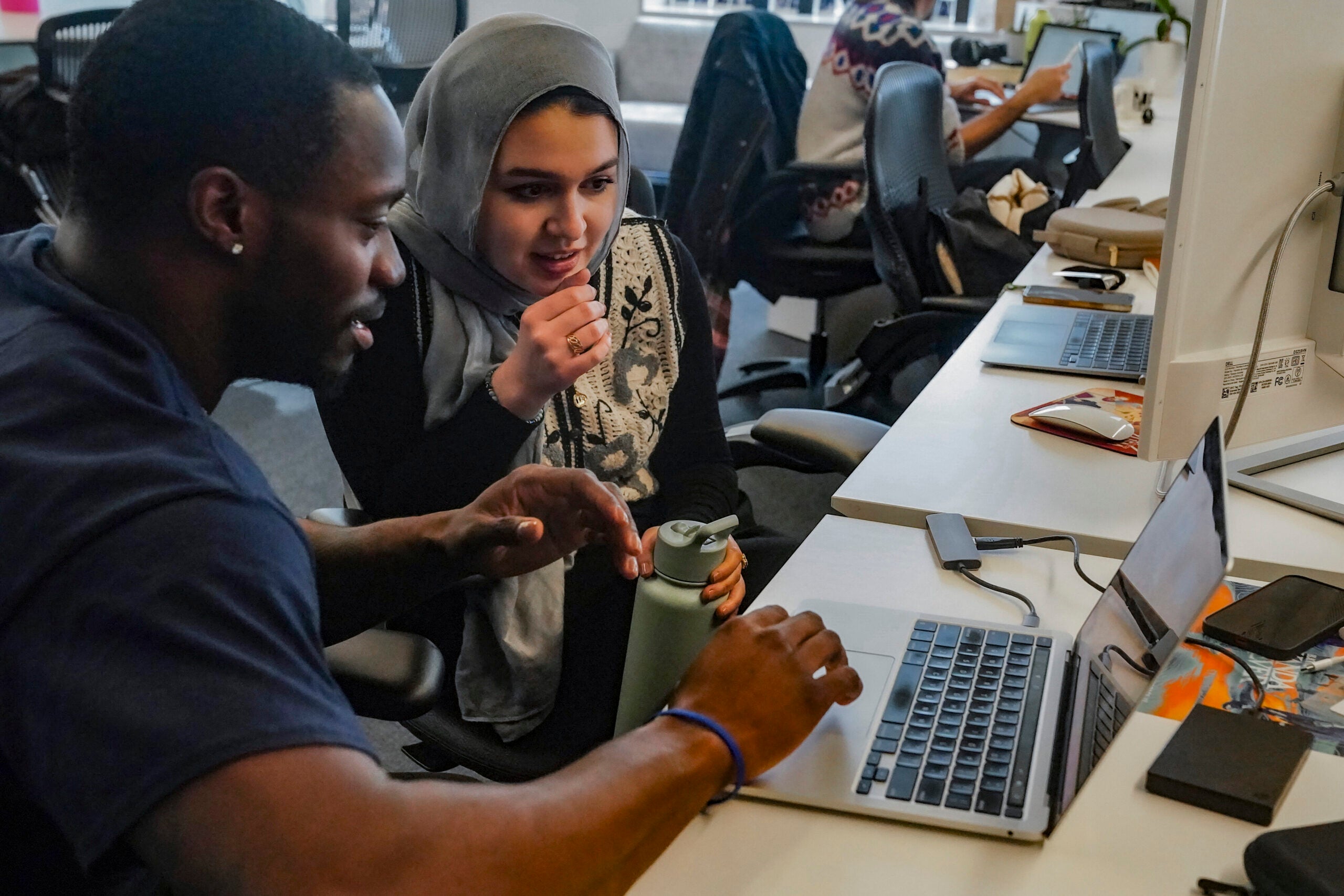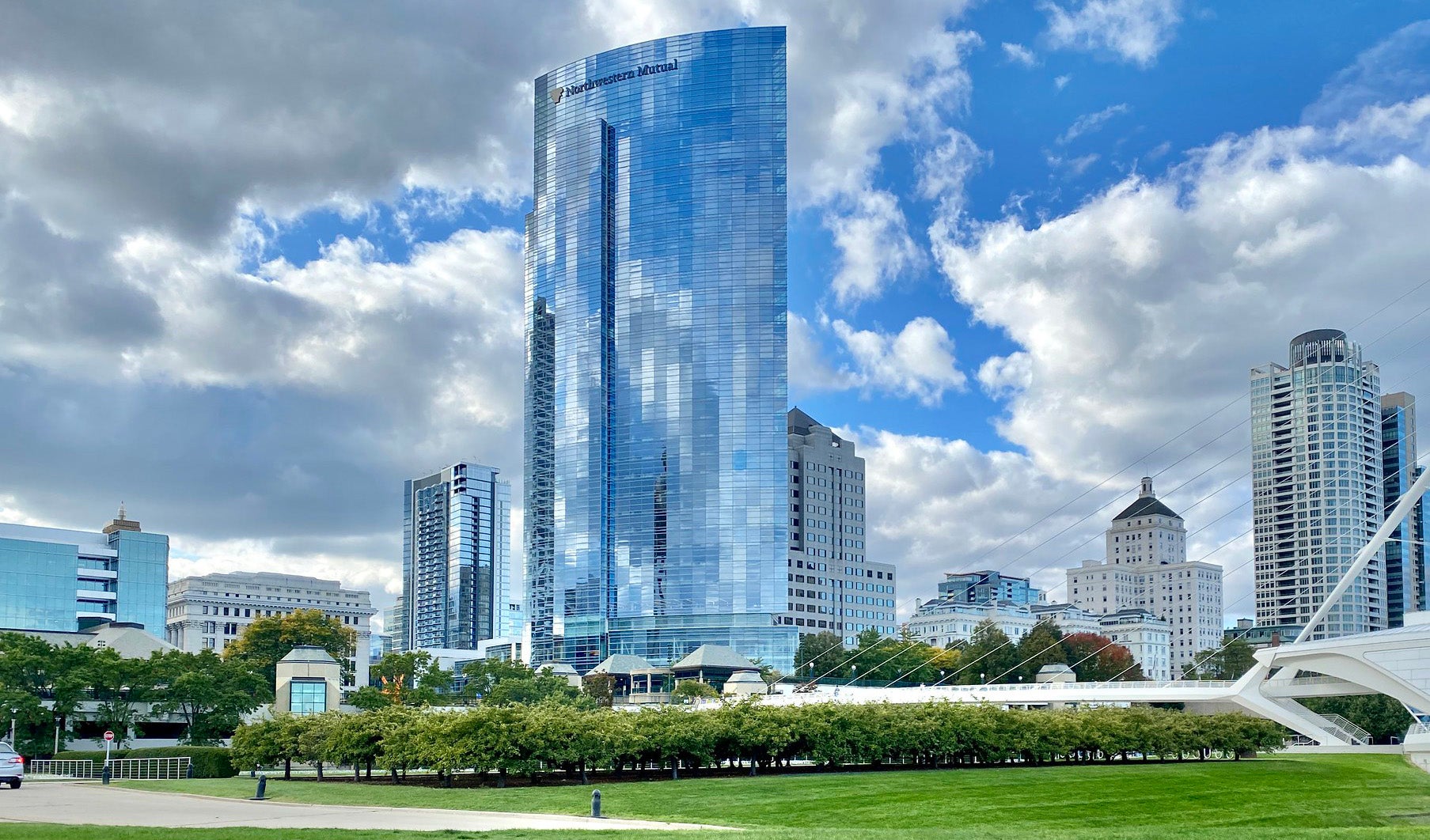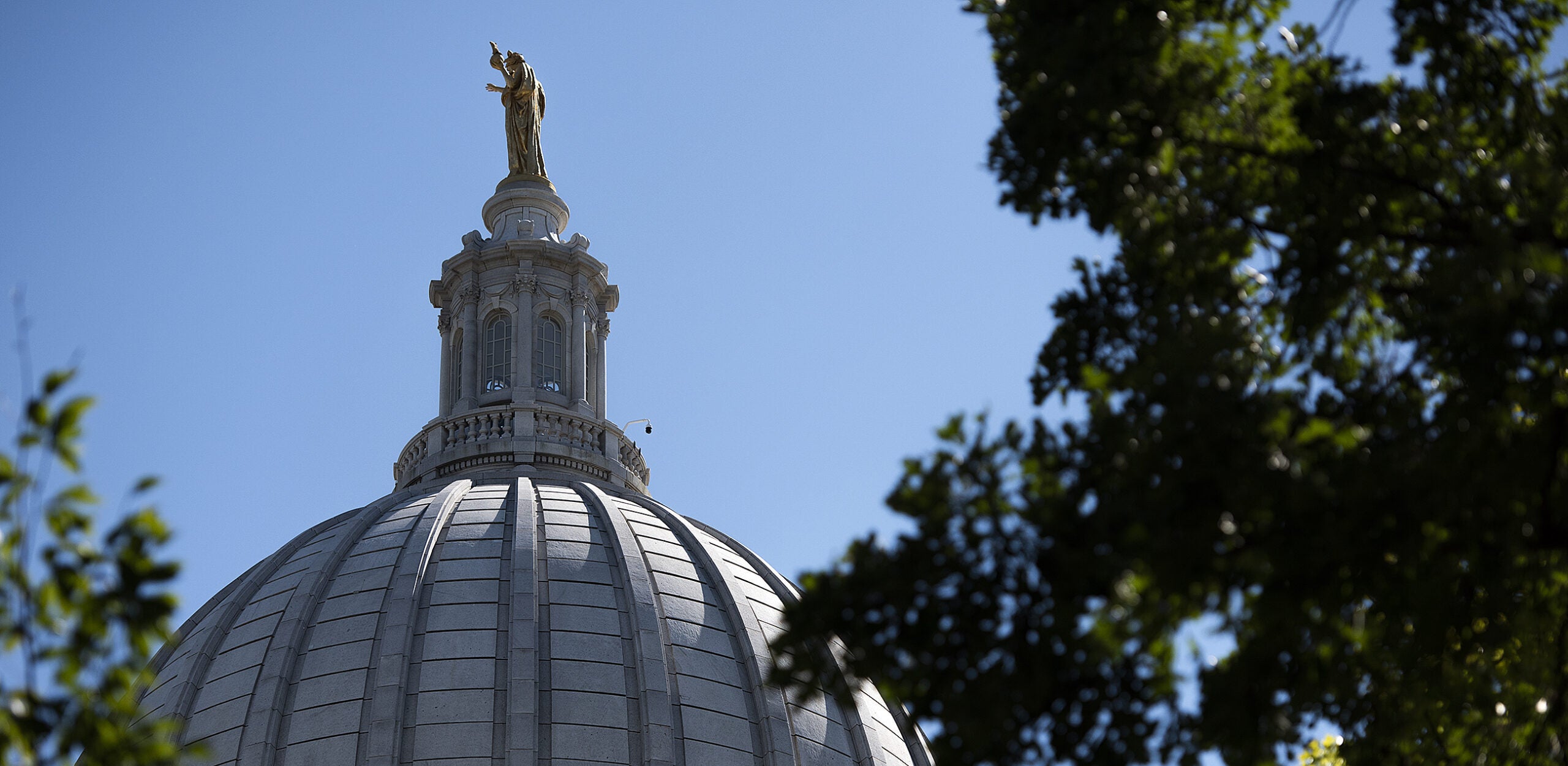After graduating from college, many young professionals move to major metropolitan areas like New York, Chicago or the Twin Cities. But that wasn’t the case for 23-year-old Alex Akmal.
She moved from Missoula, Montana to Madison after finishing college last year. Her story was recently shared by Business Insider. She told the publication she chose Madison for its college-town vibe, friendly community and outdoor amenities.
Following the article’s release, Greater Madison Chamber of Commerce President Zach Brandon had lunch with Akmal. When talking about what attracted her to Madison, their conversation turned to the importance of diversity.
News with a little more humanity
WPR’s “Wisconsin Today” newsletter keeps you connected to the state you love without feeling overwhelmed. No paywall. No agenda. No corporate filter.
“This idea of diversity in who you see, who you hang out with, the type of food that you have access to (and) the type of events that you have access to — those are things that are important to the next generation,” Brandon said.
Akmal isn’t the only Gen Zer to choose Dane County in recent years. According to Brandon, Wisconsin is leading the Midwest in recruiting workers ages 18 to 26 — with 90 percent of its net migration coming from Gen Z.
He said Madison is now one of the top-10 U.S. metros for Gen Z net migration as Gen Z workers make up over 23 percent of Madison’s workforce.
“That demographic, though, has a belief set that is rooted in being more diverse, that is rooted in this idea that everyone has a right to feel like they belong,” Brandon said. “If we’re going to both capitalize on this moment, but also be the state that we have the potential to be in the future, we need to lean into that ideology.”
That’s one of the reasons employers and local economic development organizations are embracing diversity, equity and inclusion, or DEI, as a resource to attract and retain much needed young professionals — especially as the state’s population continues to age, threatening to worsen the labor shortage.
DEI describes policies that promote representation and participation of different groups, including individuals from different ages, races, ethnicities, abilities, disabilities, genders, religions, cultures and sexual orientations.
The University of Wisconsin System has recently faced scrutiny from Republicans in the state Legislature over DEI efforts. Last week, GOP lawmakers voted to cut state funding for the UW System by $32 million while forcing the system to eliminate nearly 190 DEI jobs.
But economic development groups in southeast, south central and northeast Wisconsin say making the state welcoming to people from diverse backgrounds is crucial to bringing more young professionals and people of color to the state.
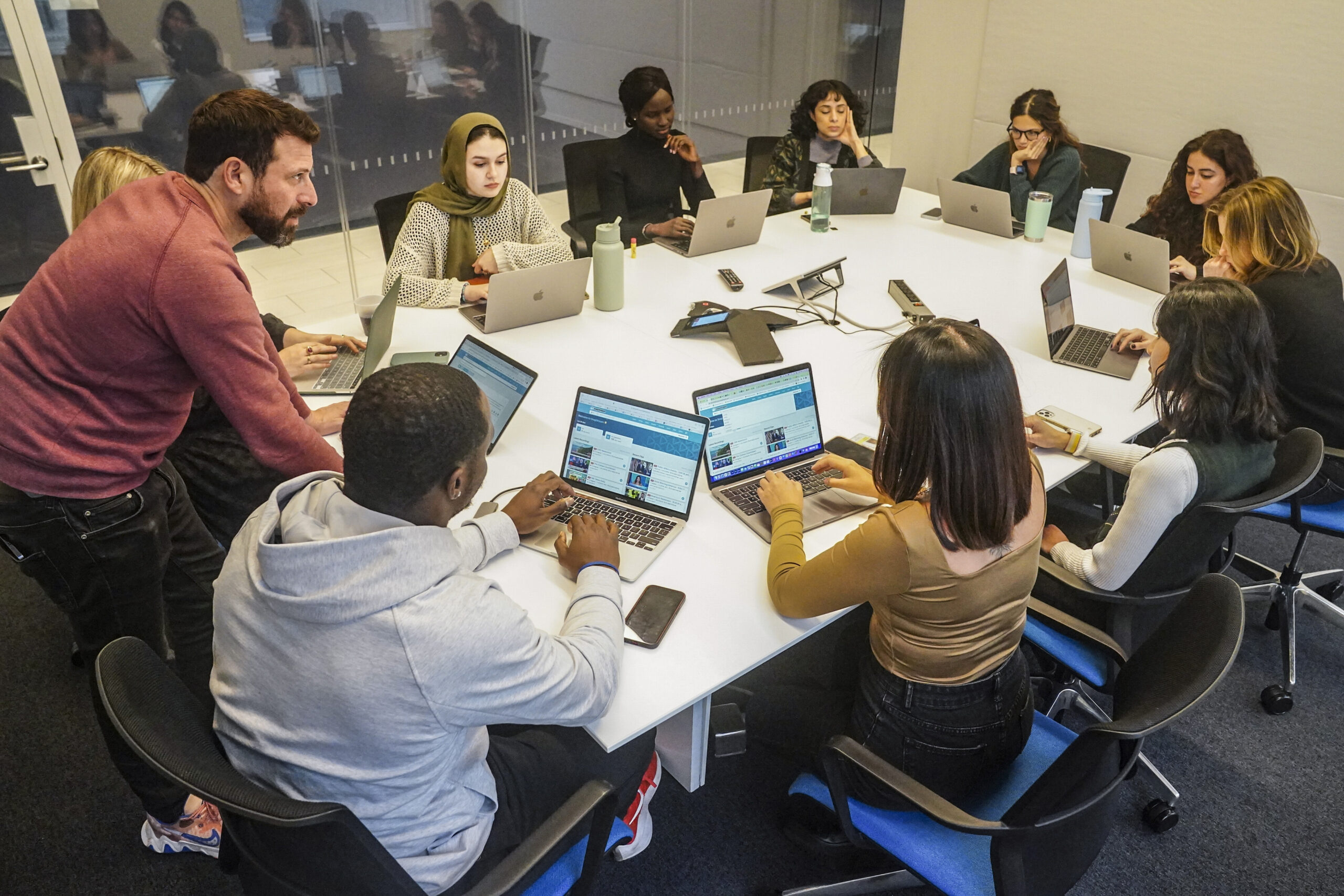
State’s workforce may shrink by 130K without more young people
If Wisconsin doesn’t improve efforts to attract and retain young people, its labor shortage could get worse by the end of the decade, according to a 2022 report by Forward Analytics, the research arm of the Wisconsin Counties Association. If current demographic trends continue, Wisconsin’s working-age population could shrink by 130,000 people by 2030.
“The future of our economy and the future of our workforce depends on aligning with this younger workforce demographic,” Brandon said.
A new report by Wisconsin Manufacturers & Commerce, the state’s largest business group, said Wisconsin was one of only 14 states with a median age over 40, and that the state needs to attract more people due to low natural population growth.
And a 2016 article by WMC President Kurt Bauer alluded to the need for Wisconsin to promote itself as inclusive to attract and retain people of color and millennials. He cited a survey the organization commissioned that showed “many people from outside the state see Wisconsin as intolerant.”
“That’s not good, period,” Bauer wrote. “But it is particularly bad if you are trying to retain and recruit minorities and members of the large millennial generation who see themselves as very open-minded.”
Metro Milwaukee businesses making strides in representation
Even so, economic development groups say their members have been driving DEI efforts as they work to better attract and retain talent in a tight labor market.
That was the case for the Metro Milwaukee Association of Commerce, or MMAC. A 2018 survey of its member businesses showed that businesses saw the area’s history of segregation and racial inequity as hurting their ability to get top talent, said Corry Joe Biddle, MMAC’s vice president of community relations.
She said organizations were hiring talented professionals of color and often saw them leave for communities with reputations of being more inclusive.
“What has made the employers kind of pay attention to it is the brain drain,” Biddle said.
The survey results prompted the organization to launch the Region of Choice Initiative, a collective of 130 employers that pledged to increase representation for people of color in Milwaukee’s workplaces. The goal is to increase Black and brown talent by 15 percent across all jobs and to increase representation in management by 25 percent by 2023.
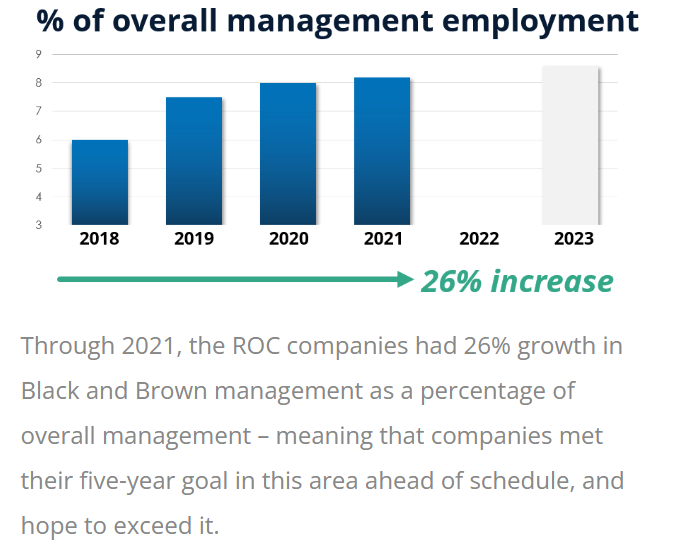
“It’s a recognition of the fact that people have very different experiences in the Milwaukee community and in Milwaukee workplaces based on their race, which is unfortunate,” Biddle said of the initiative.
From 2018 through 2021, participating companies have seen their employment numbers of professionals of color grow by 12.3 percent, and numbers of managers of color have grown by 26 percent. Biddle says that representation is important.
“It’s hard for white folks to appreciate what it feels like to be the only Black person or the only Hispanic person in a space,” she said. “It’s awkward when you’re the only person and what makes it more awkward is the expectation that you’re supposed to align to the wants, needs, desires, practices, behaviors (or) style of the majority population — that’s unfair.”
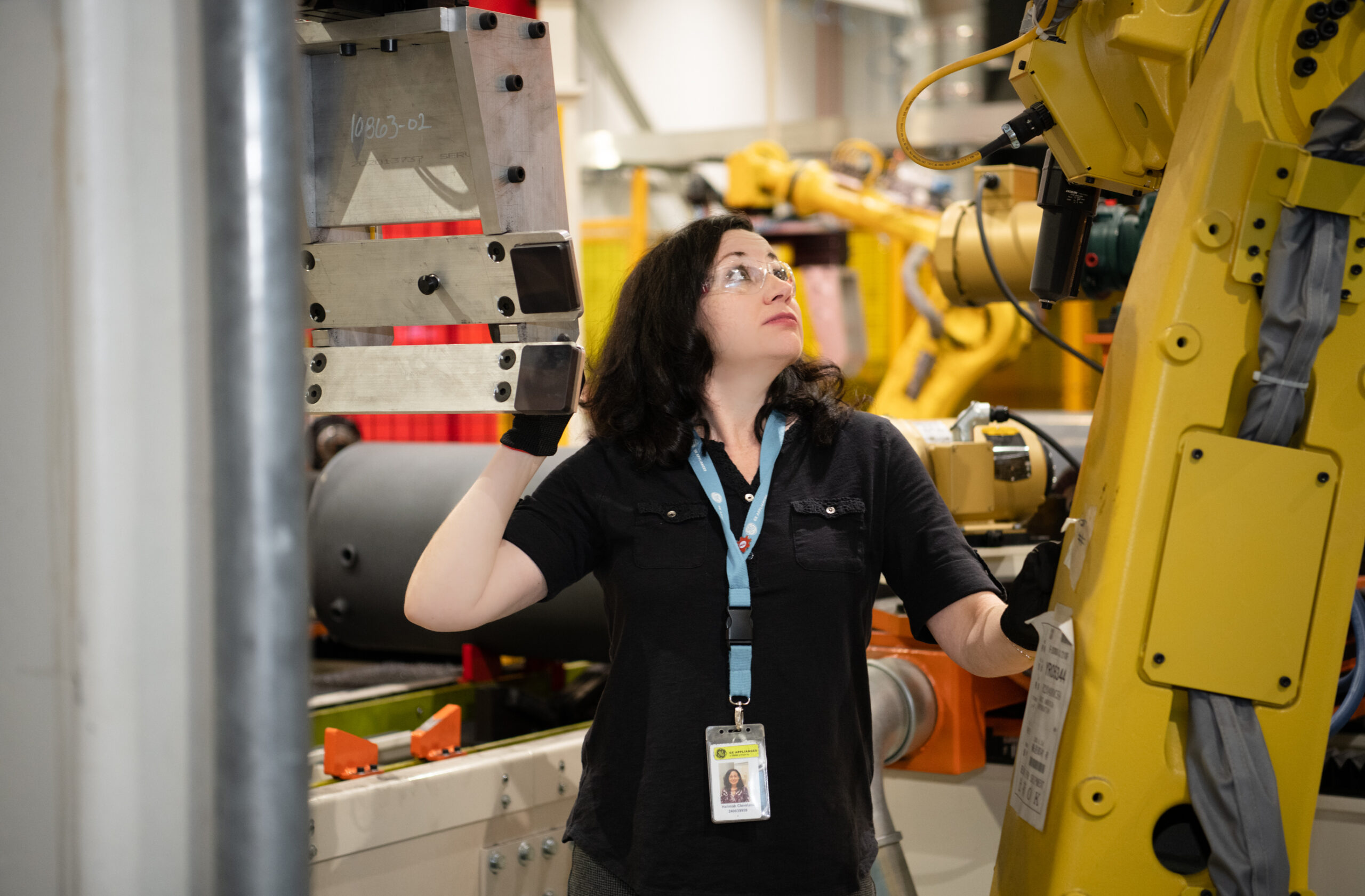
Northeast Wisconsin embraces diverse businesses, talent
Outside of Wisconsin’s two largest cities, northeast Wisconsin companies are also prioritizing DEI, said Barb LaMue, CEO of NEW North, a regional 18-county economic development organization.
“We feel that in order for us to attract talent to this region, for companies to have a better bottom line, diversity is important — and it’s the right thing to do,” LaMue said.
NEW North helped create a DEI roundtable of around 40 people, with a focus on local K-12 education, young professionals, entrepreneurship, corporate engagement and community development.
One of the initiatives that came from the roundtable was a partnership with school districts in Green Bay, Appleton and Fond du Lac to help ensure the people working in schools are representative of the communities they teach, LaMue said.
NEW North also tries to help diverse businesses that often struggle with a lack of access to capital through grant and mentorship programs — and it’s worked to encourage local CEOs to sign onto the CEO Action for Diversity & Inclusion pledge.
Other efforts focus on helping communities as a whole make themselves more inclusive and welcoming to people of all backgrounds, LaMue added.
“You can have organizations and businesses work really, really hard when they recruit diverse talent into their organizations, but if they don’t feel welcomed when they’re in the grocery store, in the park, in church or wherever it might be they may not stay here,” she said.
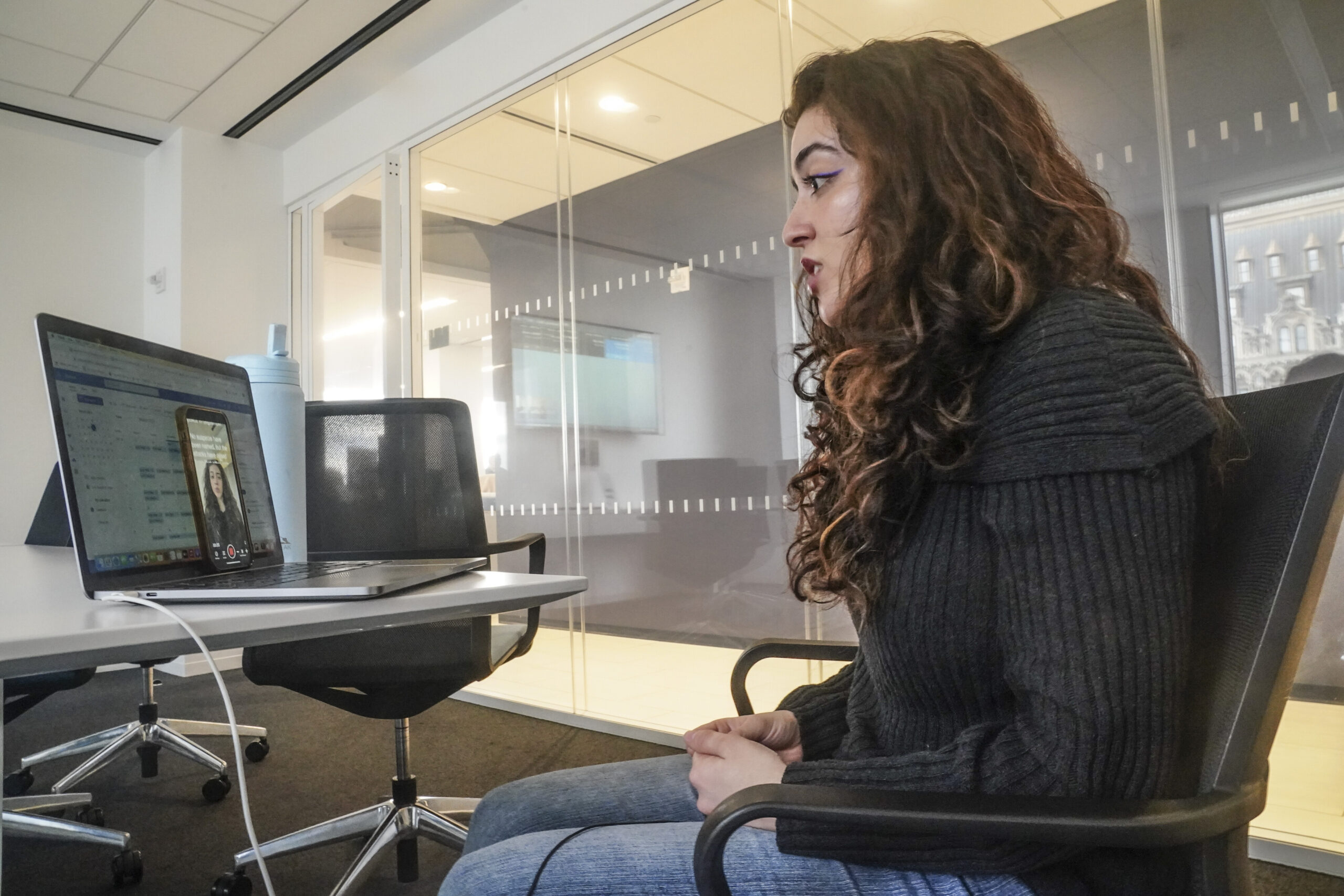
Employers say DEI is important for improving workplace culture
Beyond economic development organizations, several employers said DEI was important for improving company culture.
One of those employers is Xcel Energy, a Minnesota-based utility that does business in Wisconsin. Frank Prager, Xcel’s chief sustainability officer, said the company values DEI because it serves different communities around the country and wants its workforce and leadership to reflect those communities.
“We think it’s not only good for our customers who will see and work with people who look like them, but it also is good for our company because it helps us be a better, more effective company,” he said.
Another employer is the nonprofit WPS Health Solutions, a health insurer based in Monona. Last week, the organization’s first female CEO, Wendy Perkins, signed onto the CEO action pledge on supporting a more inclusive workplace.
“There is ample evidence to prove that, if done right, organizations with diverse and inclusive teams outperform their peers,” Perkins said in a statement.
Jihan Bekiri, the organization’s vice president of DEI, said diversity, equity and inclusion is really about giving all employees the tools they need to be successful in the workplace, regardless of background.
She said DEI doesn’t limit hiring to one specific underrepresented group, which is illegal. Rather, she says it helps employers make sure they’re “casting a wide enough net” during job searches to ensure they have a diverse pool of candidates.
“If we tend to go to the same areas to get the same candidates, we’re going to keep getting the same types of candidates,” she said. “We’re just taking a step back and saying, ‘Have we taken a look at all the possibilities? Have we given everyone a fair shot?’ That’s actually the focus when you look at it for recruiting.”
Wisconsin Public Radio, © Copyright 2025, Board of Regents of the University of Wisconsin System and Wisconsin Educational Communications Board.

